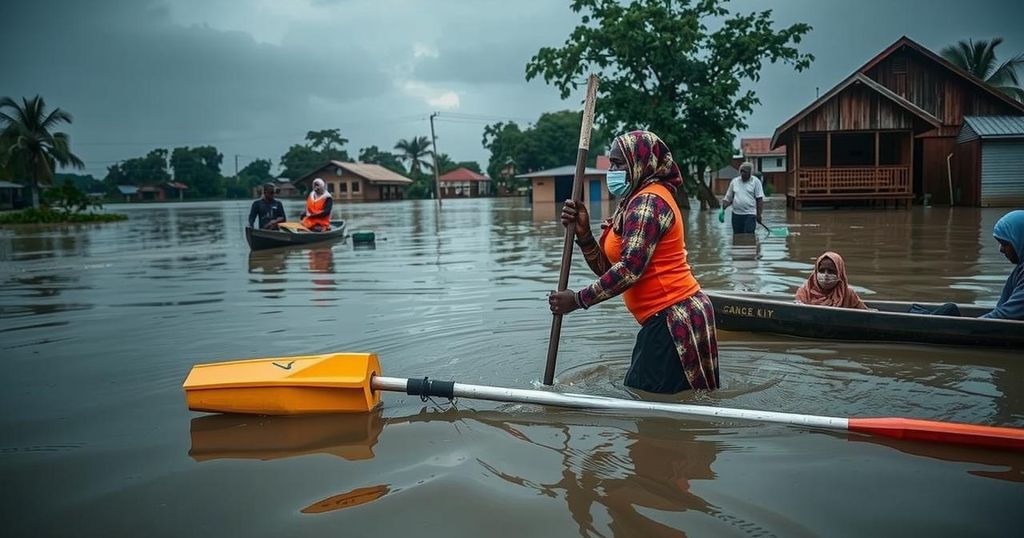Severe flooding in South Sudan has displaced over 226,000 people, submerged numerous homes and health facilities, and worsened an ongoing health crisis. The WHO is actively responding with emergency health kits and is focused on mitigating health impacts related to vector-borne diseases. The situation calls for urgent measures to strengthen healthcare infrastructure against the increasing threats posed by climate change.
South Sudan is currently experiencing unprecedented flooding, which has led to significant devastation affecting over 226,000 individuals. This calamity has submerged numerous homes and vital infrastructure across 42 of the country’s 78 counties, displacing communities and severely hindering access to healthcare. As reported on October 4, 2024, about 890,000 people have been adversely impacted by the flooding, which has resulted in the submersion of 58 health facilities and the inaccessibility of nearly 90 others due to damage to about 15 critical roads, including those connecting to Juba. The floods, typically caused by heavy rainfall from April to November, have become more devastating, exacerbated by climate change. This prevalence of flooding has compounded an already dire humanitarian crisis in South Sudan, which is host to approximately 800,000 refugees and returnees from neighboring Sudan. The health situation further deteriorates with the emergence of suspected cholera cases and a significant rise in malaria instances, where over 120,000 cases and 31 suspected fatalities have been documented as of the end of September 2024. In response to this growing health emergency, the World Health Organization (WHO) has mobilized resources and aid, distributing approximately 88 metric tons of emergency health kits across flood-impacted regions. This assistance aims to provide critical health services to over 870,000 people, encompassing key medical supplies such as antimalarial medications and cholera treatment kits. Furthermore, the WHO has conducted a rapid needs assessment in Cueibet County and is actively coordinating flood response efforts to ensure the timely delivery of healthcare services.
Severe flooding has become a recurring problem in South Sudan, particularly during the rainy season. The impacts of climate change are aggravating this situation, leading to more frequent and intense weather events that threaten the resilience of communities, their health, and their livelihoods. With access to healthcare severely compromised due to flooding, South Sudan now faces a compounded health crisis marked by the potential outbreak of diseases and increased vulnerability among displaced populations. Given that the country is already dealing with an influx of refugees from Sudan, the urgency of addressing both immediate health needs and long-term health system resilience has never been more critical.
The current severe flooding in South Sudan is not only a natural disaster but also a health emergency that requires immediate action from local and international entities. The WHO’s mobilization of emergency kits and coordination with health authorities is essential to mitigate the impacts of flooding on health systems and communities. Moreover, the situation emphasizes the urgent need for sustainable healthcare infrastructure and preparedness to combat climate-related health challenges. Without robust interventions, the ongoing crises may lead to devastating long-term consequences for the population.
Original Source: www.afro.who.int







